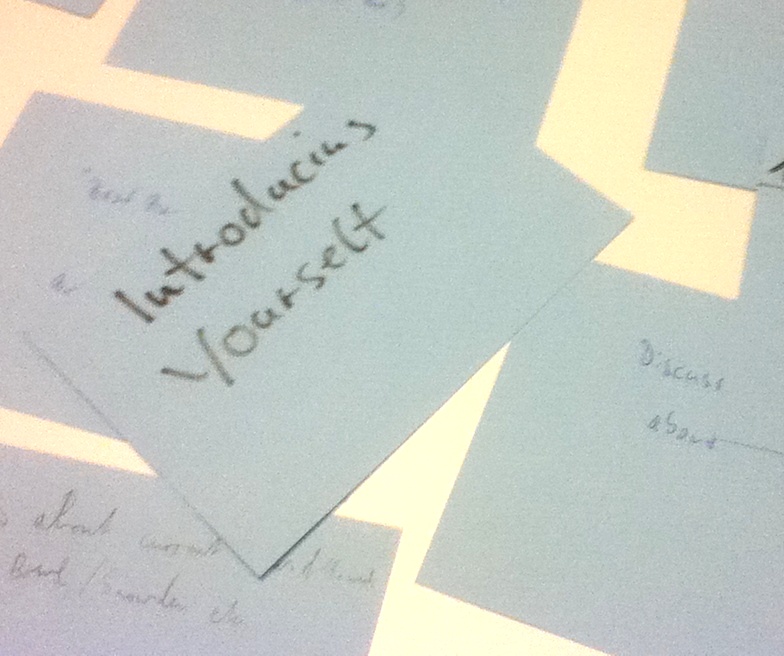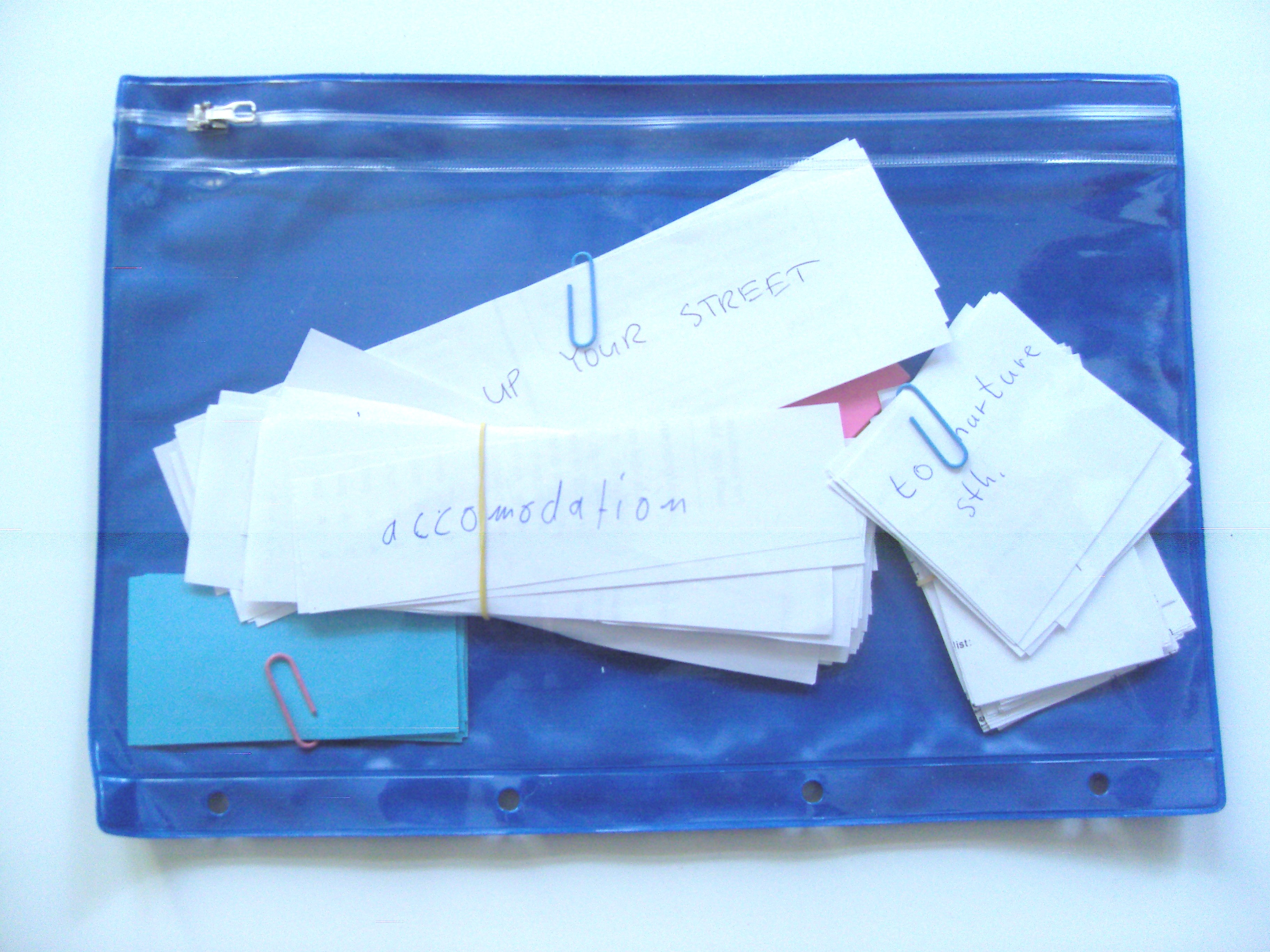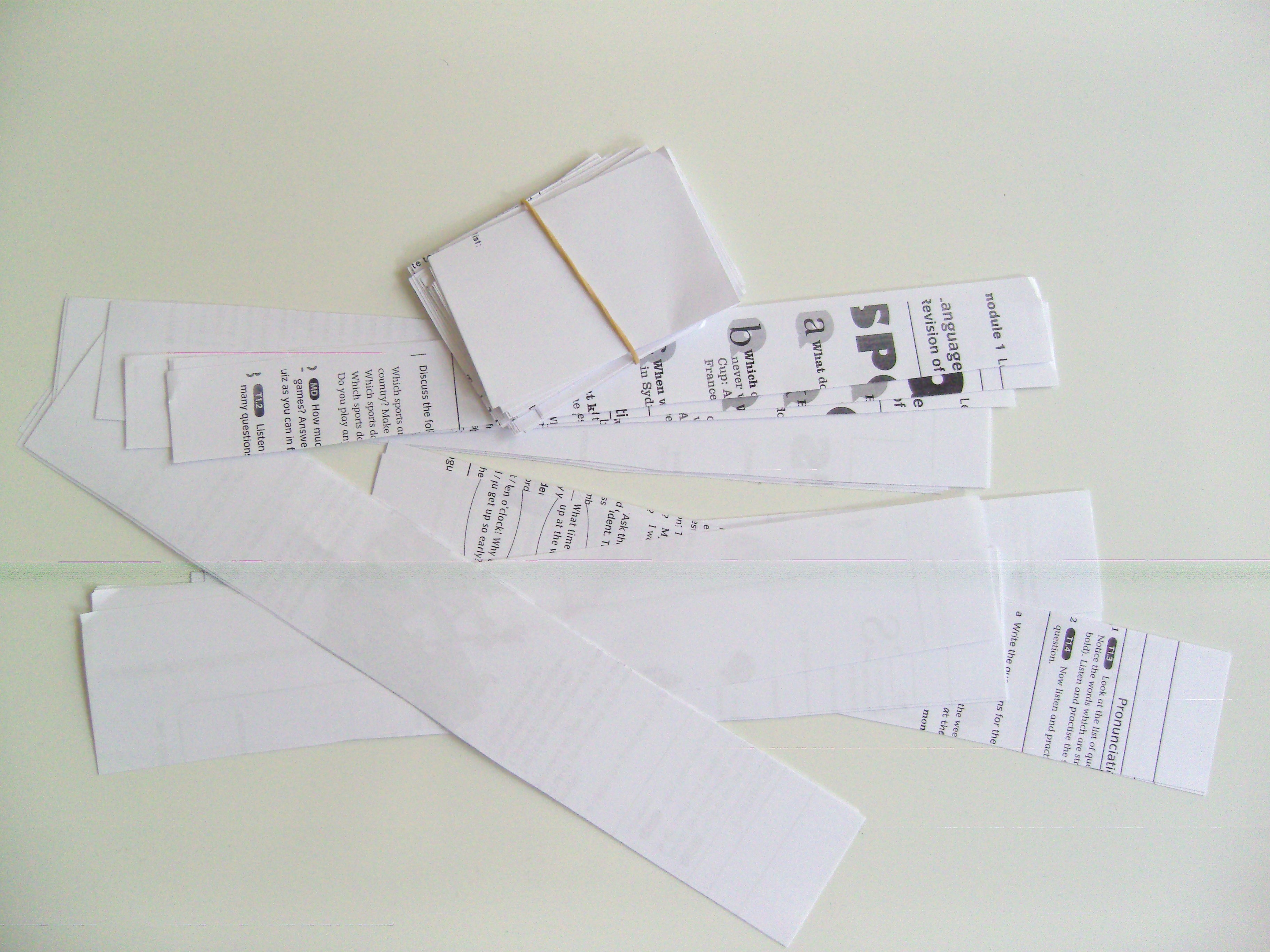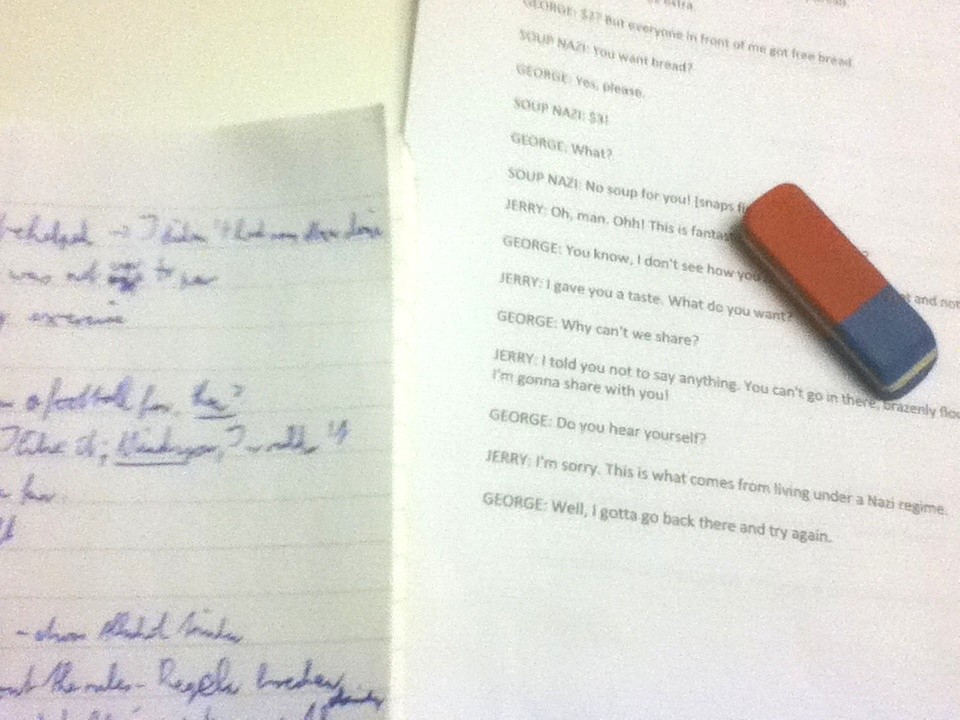In this post I give a general overview of the last 12 weeks, share some of the learner’s comments and encourage you to decentralise your teaching too!
Background
[youtube=http://youtu.be/QoYiQ8Qsozk]
I started teaching this particular class in January 2013. Initially I went in armed with a coursebook but soon noticed the tsunami of boredom that swept across the classroom. These learners work in the start-up sector in Berlin, where teams are decentralised and there is – at least in theory – a flat hierarchy. So, it struck me that this was a perfect opportunity to try something new…
I was also interested in how other approaches to ELT like Dogme, Learner Autonomy and Task-based learning had to some extent failed to institutionalise themselves into the mainstream of ELT.
Let’s take Dogme/ Teaching Unplugged as an example. The main inspiration behind Scott Thornbury’s more direct, unmediated approach to teaching English was Leo Van Lier. Leo’s work took an ethnographic approach, which involves close study of a local environment or group in a naturally occurring setting (Geertz’s famous thick description). When we bring the focus and level of analysis down to the learner, the classroom, the teacher and the relationship betwen them we gain insight and knowledge about that context, as Van Lier did with The classroom and the language learner (1988). It sounds preposterous now, but no one had actually gone into a classroom and analysed how learners actually try to learn languages in the classroom setting.
This is the strength and originality of both Van Lier’s work and the Dogme approach – that the ideas are based on classroom interaction and experience. It’s also why I hear the word scaffolding a lot more now than 10 years ago (actually, I don’t know if that’s a good or bad thing – the word is ubiquitous!)
But, ethnography may not be the best tool to think about institutional phenomena, and the ELT industry consists of institutions with various interests. That is why I wanted to explore a broader approach – Decentralisation – which I believe could work on three levels:
micro – Individual learners, classrooms and teachers
Example: How many times have you asked this question to your learners: What did you write in your notebooks last week?
Activity: Get learners to swap notebooks and tell each other about the last lesson
meso – ELT materials, individual language schools
Example: The principle of granularity – teachers should be able to pick and choose which parts of coursebooks/ materials they want!
Activity: Publishers – give teachers some access to templates of your materials and let them redesign them for local contexts
macro – ELT industry, institutions
Example: Involve teachers in decision making processes
Activity: Cambridge/ Trinity – Involve teachers in (crowd-) reform of qualifications (Certificate, Diploma courses)
Core concepts of Decentralised Teaching
In my teaching situation, over the last 12 weeks, I’ve found that three core concepts have emerged:
Devolving power – Learners decide the content of the syllabus. How do they know what to choose? At lower levels the teacher would have to be more involved here, but at higher levels learners are pretty much able to diagnose their own problems with the language (e.g. ‘I need practice with reported speech’ – something my learners came up with).
Process – I can’t stress this enough, the process is all. The process is embodied in the syllabus which provides a plan of action, something for the learners to ‘hold on to’ (I printed and gave this out) and it also functions as an evaluation and reflection tool.
But moving to a process that I and the learners controlled has been a long-term project. I actually started teaching this class in January 2013 and introduced more and more task-based lessons, discussion and activities – gradually reducing coursebook use over 6 months before trying out a fully Decentralised approach! So you have to be in for the long haul – I also think transition teaching is a good way of describing this.
To close the first syllabus, in Week 12 – the final week- I made a binder with colour photos that I’d taken and all the materials that we’d used during the course. That way the learners got to reflect on the lessons, and think about what they have learnt.
Genre/ Context specificity – In my context, the English classes are provided as a ‘perk’. The company wants to show its loyalty to the employees, and the employees/ learners get to improve their English for work. Therefore, as well as doing Useful Business Phrases and job-related topics such as Appraisals we can also have discussions and watch the occasional episode of Sherlock! But I try to ensure that in every lesson there’s some vocabulary that they can pick up and use at work the next day.
Therefore in this context, a Decentralised syllabus chosen almost exclusively by the learners works well. In other contexts, a balance might have to be struck between Centralised requirements (e.g. getting to B1, passing a Cambridge exam) with Decentralised Learning (i.e. taking control of your own learning, having a say in the syllabus). The strength of this approach is that it’s flexible and adaptable to different contexts.
The results: Learners
I sent the learners an anonymous feedback form using Google Tools in the final week of the syllabus. Here are some comments:
using a course book could be helpful, sometimes. but i don’t need one.
Nice ideas, no standard course with boring topics. Instead huge
interactivity and some interesting experiments for a change.
Don’t like using course books..Has been nicer when you brought articles and explained the grammar by your own.
I feel much more confident when speaking English
The results: Teacher
Every week for the past 12 weeks I’ve taught a 2 hour lesson with no coursebook. Apart from when doing my Certificate, Diploma or other training courses, this is virtually the only time I’ve actually felt like a teacher as normally I’m just delivering coursebook content. I believe this amounts to Deskilling and is a trend that is set to increase with the Pearson-isation of ELT, the subject of a recent elt chat.
Therefore doing this experiment has forced me to Reskill. I’ve become better at planning lessons, better able to extend activities and become more relaxed during classes. I’m now integrating tools such as Quizlet in more of my classes and hopefully, giving classes that are more learner-centred than before.
What next?
Well, as well as evaluating the last syllabus using Google Forms we made a new one – syllabus 2!
 So I’ll be continuing Decentralised Teaching with this group for the foreseeable future. I’m also going to try and expand and get new clients using this approach and network with other teachers who have similar values on language learning.
So I’ll be continuing Decentralised Teaching with this group for the foreseeable future. I’m also going to try and expand and get new clients using this approach and network with other teachers who have similar values on language learning.
I’ll (hopefully) be presenting this project at the Lingua Camp in Hannover 10-11th May. I’ll also be presenting at the BESIG in Graz 13-15th June. Come and say hi if you like, or even if don’t like the blog!
Anyone interested in doing the same thing – 3 things that will help!
If any teachers would like to adopt a more Decentralised approach to teaching then feel free to get in touch – and good luck if you try it out! Here are three things you can do today that will help you Decentralise your teaching:
1) Reduce your coursebook use over a period of time and introduce more learner-centred activities e.g. dialogues, task-based lessons (great for mixed ability groups), vocabulary games, dictoglosses. Then, if you get a positive response – negotiate a medium-term syllabus with your learners. Then carry it out, evaluate and start the whole process again.
2) Pay attention to what your learners find important – go round the class and take a look at the learner’s notebooks. Ask them why they’ve written this or that particular word – you’ll be surprised! Give out exit slips to get more information on what your learners find hard and what they value about your class.
3) Stationary & equipment. As the saying goes – if want to get ahead get some stationary! I have several old-school and new-school tools that I’ve found really useful.
A laminator
 This is really useful for creating reusable materials and worksheets.
This is really useful for creating reusable materials and worksheets.
A word-bag
 Great for revision/ vocabulary games.
Great for revision/ vocabulary games.
Paper slips
 Useful for entry/ exist slips e.g. ‘Write down one sentence describing what you did at the weekend’
Useful for entry/ exist slips e.g. ‘Write down one sentence describing what you did at the weekend’
So that’s all from me – the last 12 weeks have been difficult at times but very rewarding. Any thoughts or comments are welcome – drop me a line!
paul




EN: Thanks so much Paul for sharing this with us. Very well done and very inspiring!
Very interesting Paul. I teach 20 hours of Business English a week to one group of mixed students in Melbourne. Students come in and out of the class on a weekly basis so keeping it coherent, productive and engaging is really challenging. Your blog has really got me thinking about things. Thanks for your insight.
Hi Matthew,
Thanks for commenting! I know the challenges of various kinds of ‘rolling enrollment’ myself, so I can emphathise. As you say, keeping lessons ‘coherent, productive and engaging’ is a real challenge.
Glad that you find the blog has got you thinking – I’ve always found a lot of intellectual stimulation in unusual areas e.g. music, politics, art. One book that I’m reading right now is particularly interesting. It’s called ‘Antifragile: Things that gain from disorder’ by Nassim Nicholas Taleb (author of Black Swan). He argues that we should be trying to build in ‘antifragility’ into our lives, professions and institutions (not sure I believe everything he says, but it’s definitely provocative).
Also, I often find that the hardest groups to teach often provide the most professional insight and push you as a pedagogue into new waters. That’s happened to me several times.
cheers,
paul